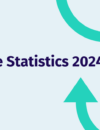
The saying goes that you never get a second chance to make a first impression. For anyone interested in joining your team, your job description or advertisement will be their first look at working life within your organisation. This content is your chance to introduce yourself and your values, and welcome the reader into your community before they’ve even submitted their CV.
You’ll no doubt include all the vital information about the role itself, application requirements, and details about your organisation.
But are you also being inclusive?
Creating an inclusive job description will demonstrate your core values of inclusivity, equality and diversity, ensuring that your potential employees feel supported and welcome right from their first interaction with you. But it goes further than that.
Job seekers are looking to join actively inclusive organisations which focus on EDI as a priority for their new job, so you should be focused on it, too. Yello found that 64% of survey respondents agreed that “a potential employer’s commitment to diversity and inclusion would be an important factor in their decision to accept an offer of employment.”
You’re likely to find that prioritising EDI in your job descriptions, as well as in your ways of working, increases the number of people applying for the role! More applicants mean you’re more likely to find the best person for the job.
Starting from scratch
Remember: you cannot truly have an inclusive job description if the job itself is not accessible or inclusive.
Be sure to consider your requirements for the role. For example, does the successful candidate really need a degree to succeed in this position? In a world where more people are priced out of further education, or are opting for alternative routes such as internships or apprenticeships, don’t discount different types of experience and education for roles where you can be flexible.
If the role does require a degree, remember that graduates have to start somewhere. Many advertisements ask graduates to have years of experience before applying, but that’s not always realistic. Many graduates enter the job market with limited work experience purely because of the culture of unpaid internships; most simply afford to work for free, and so their CV suffers next to those who maybe have more support. Other applicants may also be looking for a career change, or could be starting over. Experience is not always a reflection of someone’s capabilities.
Be mindful of requirements like this; you might be instantly distancing yourself from the best candidates simply by fishing from a smaller pool of your own making!
Similarly, think about the essential skills you’re asking for. Does the candidate have to have every single box ticked? It was once reported that “Men apply for a job when they meet only 60% of the qualifications, but women apply only if they meet 100% of them.” By implying that all skills and abilities are ‘essential’ when they aren’t, you’re likely to put off hundreds of applicants, and may even perpetuate gender imbalance. Consider what skills or knowledge could be developed or learned on the job. You may be unconsciously preventing star candidates from applying
We all know that ‘work perks’ and support systems will be a huge focus for applicants, too. Shout about how your organisation supports your teams. Flexible hours, remote working opportunities, on-site nurseries, maternity/paternity/adoption leave, staff networks and even on-site faith centres should all be highlighted within your advert. Demonstrate your adaptability and understanding! Otherwise, you will likely miss out on attracting parents, carers, those of various faiths and beliefs and more. Be transparent, and be inclusive!
The power of words
Just as checking your advertisement for impeccable spelling and grammar is important, so is ensuring that you’ve written it inclusively and equitably.
Watch out for gendered language. Often we don’t realise we are using it, and it could be deterring applicants.
Some words are often seen as having a gender bias and may be viewed as more ‘masculine’, or more ‘feminine’. If your job description uses more masculine words and phrases, you could be unintentionally turning away female applicants. Analysing your copy using clever tools like Gender Decoder or Textio, and using even more gender-neutral language, will help you to appeal to all genders and identities.
Making your job description accessible to read is also vital. Avoid jargon and use Plain English to ensure you’re not excluding anyone from applying.
Additionally, think about your neurodivergent audiences; avoid unnecessarily lengthy copy, for example. Creating an advert that is screen-reader friendly or visually accessible is also essential for reaching out to recruits with visual impairments or additional requirements when it comes to content consumption.
Be mindful that the language you use does not exclude anyone from different cultural backgrounds or age groups, or those with disabilities, too. Melissa DellaBartolomea at Inclusion Hub helpfully points out that:
“At a glance, the differences between “standing in place” and “remaining in a stationary position” or “talking” and “communicating” may seem like small ones. To a potential candidate, it can make a world of difference.”
She also explains that including clothing requirements unnecessarily, or referencing language abilities, could also prove extremely problematic in job descriptions.
In general, watch out for words or phrases that might discriminate against any protected characteristic.
Location matters
Finally, where are you advertising?
Considering where you are posting your job is another huge factor in giving all applicants an equal opportunity. Diversify the platforms you use to reach your audience and, in turn, you’ll reach a more diverse – and larger – pool of applicants!
The bigger picture
Unconscious bias means that, as people, we may habitually look for or gravitate towards people with similar backgrounds, beliefs, identities or interests. This can happen at work, too, and results in discrimination.
Of course, tackling unconscious bias in your job descriptions and adverts, and ensuring they are inclusive and accessible, will offer countless benefits for you and your organisation. But, moreover, it will help to tackle inequality within your industry and in society, too, breaking down the barriers that exclude so many individuals and social groups from climbing the ladder, succeeding, and reaching their goals and dreams.
Your organisation is the sum of the community within it; so make it as diverse, inclusive and welcoming as possible, and get the right person for the role.
At Druthers, it’s our mission and our passion to empower organisations to find the best person to make an impact on their work, from a diverse shortlist of remarkable talent. Get in touch with us to find out how your business can make a positive change to your hiring and retention processes.





